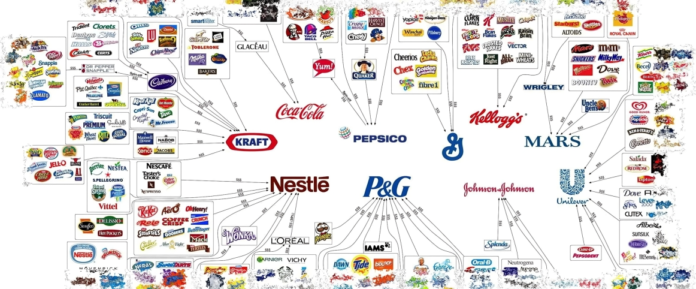Amid the ongoing political instability, rising energy costs, and unprecedented interest rates, multinational food companies have managed to post robust sales in the first half of 2024, despite the challenging economic landscape and soaring inflation.
Although some Pakistani consumers boycotted soft drinks and milk products from well-known foreign multinational food companies in protest of the Israeli actions in Gaza since October 2023, the data indicates that locally produced food items, manufactured in joint ventures with multinational food companies, have not faced a significant decline in sales.
While the exact sales volumes remain undisclosed, industry insiders suggest that higher prices have played a crucial role in driving the impressive revenue figures for these food products. Friesland Campina Engro Pakistan (FCEPL) saw its revenue jump to Rs55 billion for the first half of 2024, up from Rs47 billion in the same period last year. However, despite this growth, the company’s profit-after-tax fell by 6% to Rs1.25 billion, largely due to soaring interest rates.
The FCEPL’s frozen dessert segment recorded a 13% year-on-year revenue increase to Rs6.16 billion, while its dairy-based segment saw an 18% rise to Rs48.87 billion. The recently imposed 18% sales tax on packaged milk, introduced through the Finance Bill 2024, has significantly raised prices, further straining consumer budgets already impacted by inflation.
Nestle Pakistan Ltd (NPL) reported a 6.2% rise in sales, reaching Rs107.7 billion for the same period. Despite broad brand expansion and strong demand, NPL’s net profit dropped by 8.34% to Rs10 billion due to escalating commodity and energy prices and higher brand investments. The company has expressed concerns over the new taxes and anticipates continued high costs for the rest of the year, prompting a cautious approach to navigating this difficult environment.
Unilever Pakistan Foods Limited (UPFL) experienced a 9.3% decline in net sales to Rs17 billion, coupled with a 26.7% drop in profit to Rs3.8 billion. The company attributes this to the impact of double-digit inflation and rising utility costs, which have dampened consumer purchasing power, especially for non-essential products. However, the potential revival of the IMF program and government measures could stabilize the macroeconomic environment.
Colgate Palmolive Pakistan Ltd and Ismail Industries Ltd also reported mixed results, with Colgate’s profit soaring despite a drop in turnover, and Ismail Industries showing impressive sales growth but a decline in profits. Fauji Foods Ltd managed to turn a profit of Rs337 million, reversing last year’s losses.
Also Read: Senate Committee Directs to Launch National Campaign to Reduce Food Waste
Overall, while multinational food companies face challenges from new taxes and inflationary pressures, their ability to sustain sales growth indicates a resilient consumer market, particularly for locally produced joint venture products.


